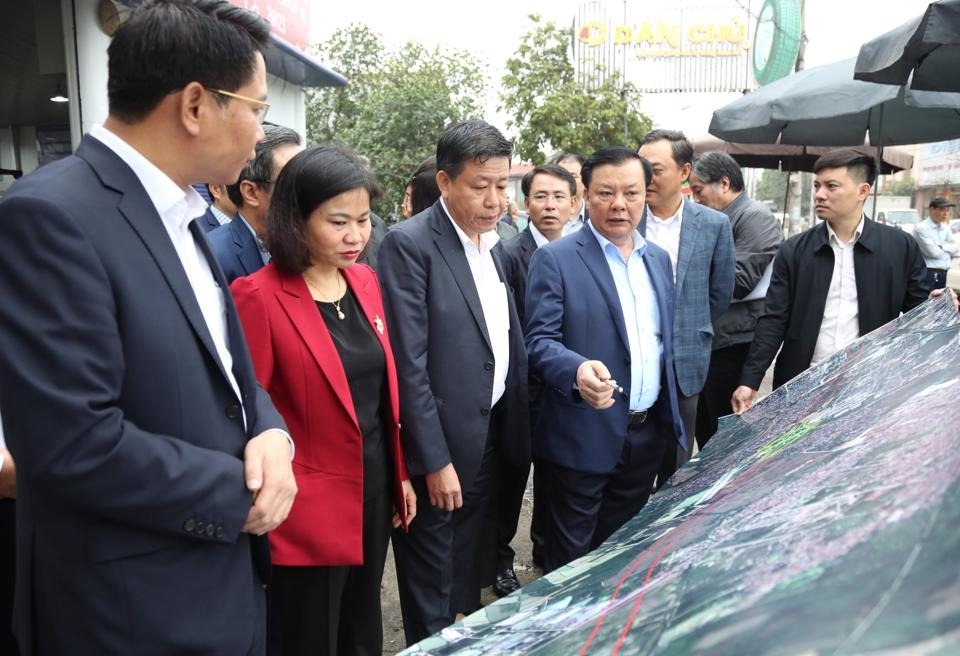Hanoi to build 13 resettlement areas for Ring Road No.4 project
The city expects to complete the construction of the resettlement areas in 2024, with a total investment capital of VND13.36 trillion (US$563 million).
Hanoi plans to build 13 resettlement areas for affected households under the Ring Road No.4 project with total investment capital of VND13.36 trillion (US$563 million) financed by central and local budgets.
Hanoi's leaders inspect the site clearance process under the Ring Road No.4 project in Ha Dong District. Photo: The Hanoi Times |
The move was revealed in a decision signed by the Chairman of the Hanoi People’s Committee, Tran Sy Thanh, regarding the compensation, support, and resettlement under the Ring Road No.4 project.
The project involves land requisition, compensation, support, and resettlement in seven districts, namely Ha Dong, Soc Son, Me Linh, Dan Phuong, Hoai Duc, Thanh Oai, and Thuong Tin.
The total land area to be requisitioned for the construction of Ring Road No. 4 is approximately 812.07 ha, and the construction of 13 resettlement areas will need 39.28 ha in five districts of Me Linh, Dan Phuong, Hoai Duc, Thanh Oai, and Thuong Tin.
A key part of the project involves the construction of 13 resettlement areas in five districts of Hanoi, specifically three projects in Van Khe, Dai Thinh, and Chu Phan communes of Me Linh district; two in Duc Thuong and Dong La communes in Hoai Duc district; two in Cu Khe and Tam Hung communes of Thanh Oai district; and four in Khanh Ha, Van Binh, Hong Van, and Van Tao communes of Thuong Tin district.
The investment project for the construction of Ring Road 4 in the Hanoi Capital Region, covering 1,341 hectares and spanning a total length of 112.8 kilometers, will pass through Hanoi (58.2 kilometers), Hung Yen (19.3 kilometers) and Bac Ninh (25.6 kilometers). It will run from the Noi Bai - Lao Cai highway in Soc Son District to the Noi Bai - Ha Long highway in Que Vo District, Bac Ninh. The project, with a total cost of VND86 trillion (US$3.64 billion), is divided into seven components, including three for compensation and support for households affected by the project, three for building urban roads as part of the Ring Road (financed through public funds), and one for constructing an expressway through a public-private partnership (PPP) mechanism.
|













